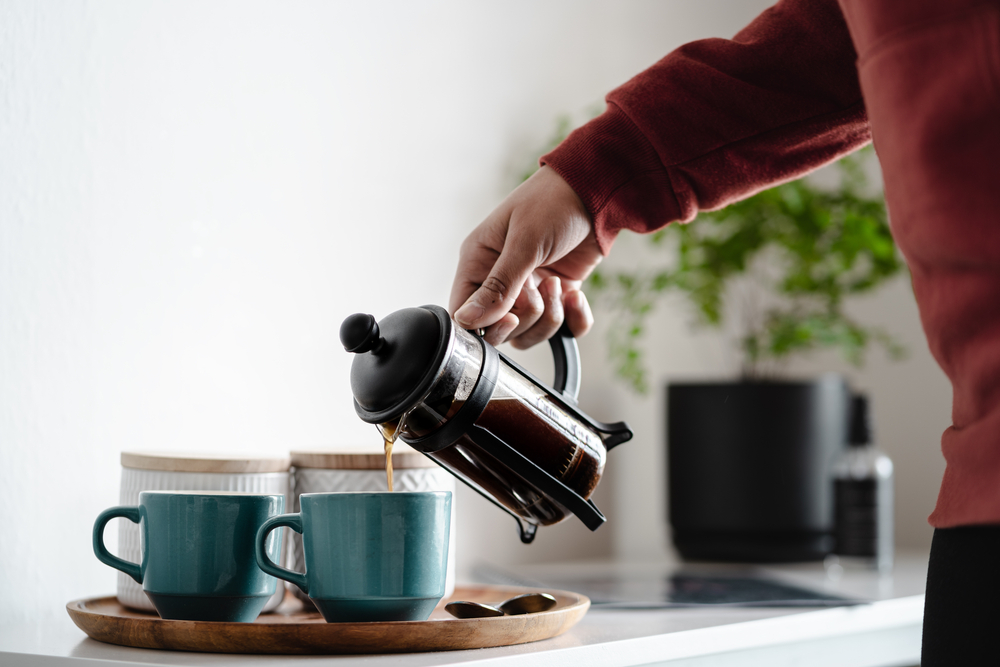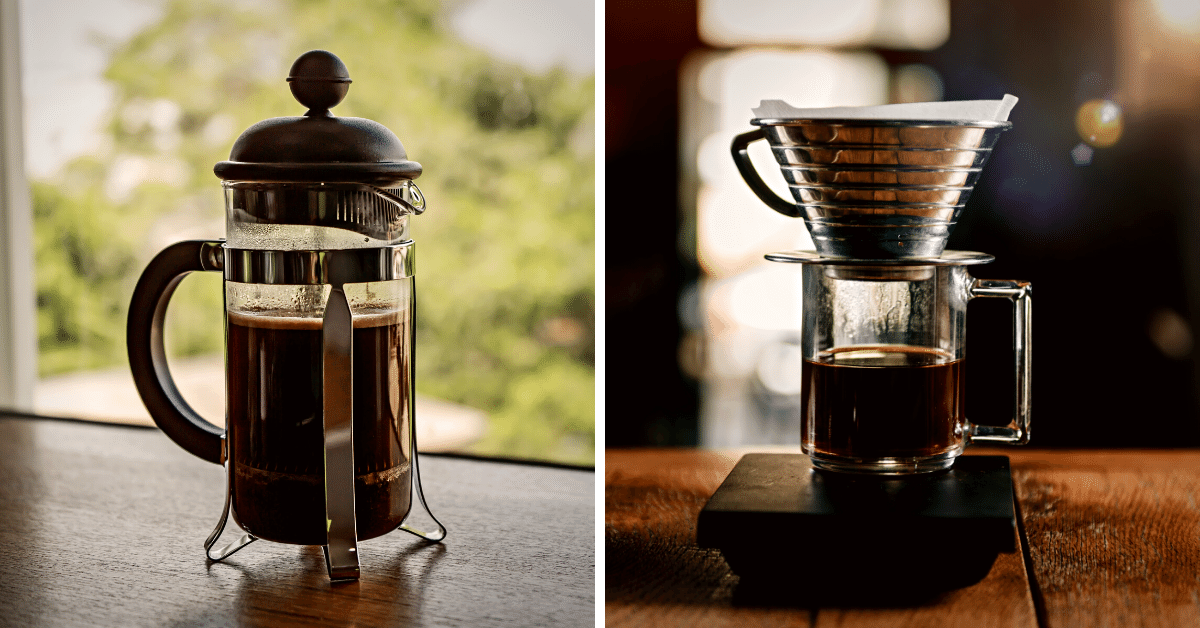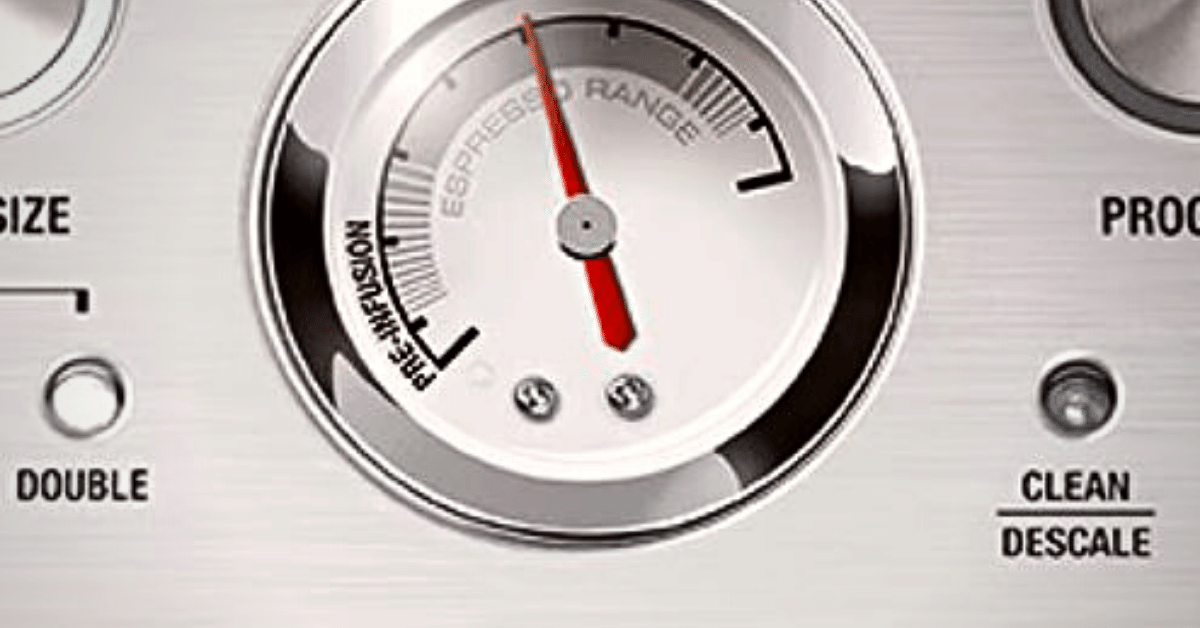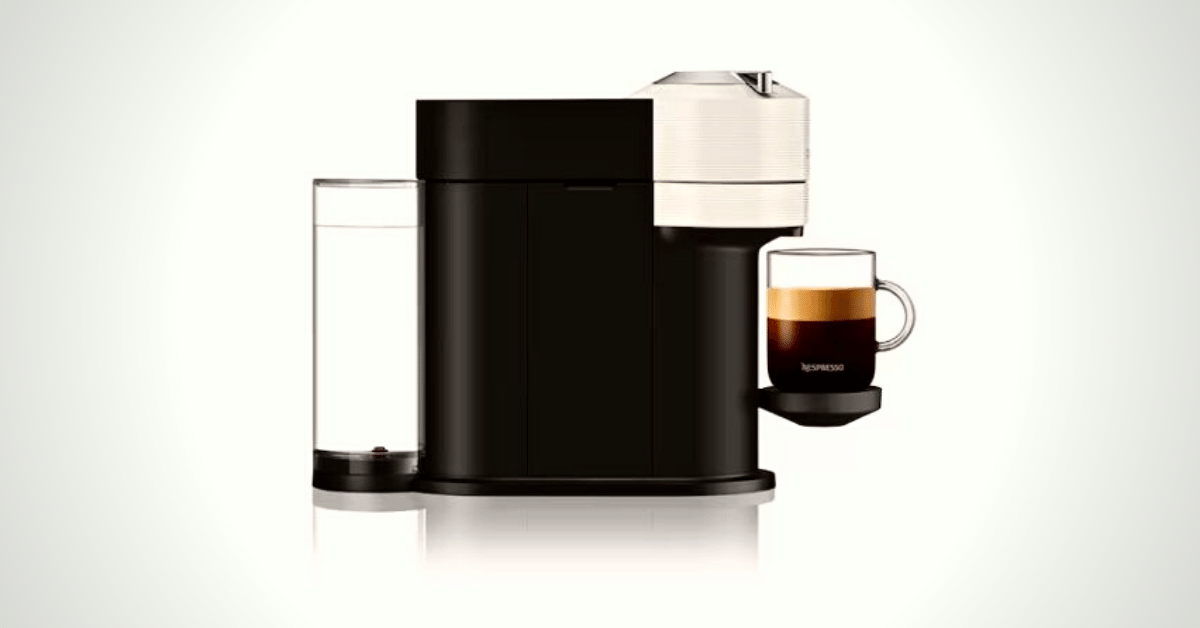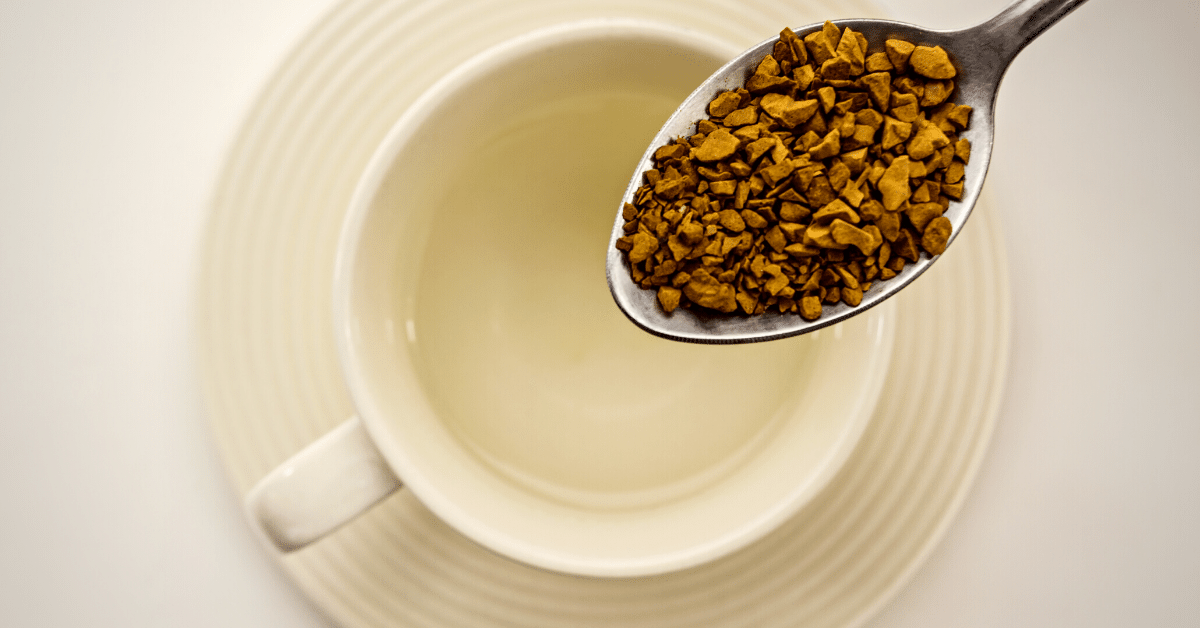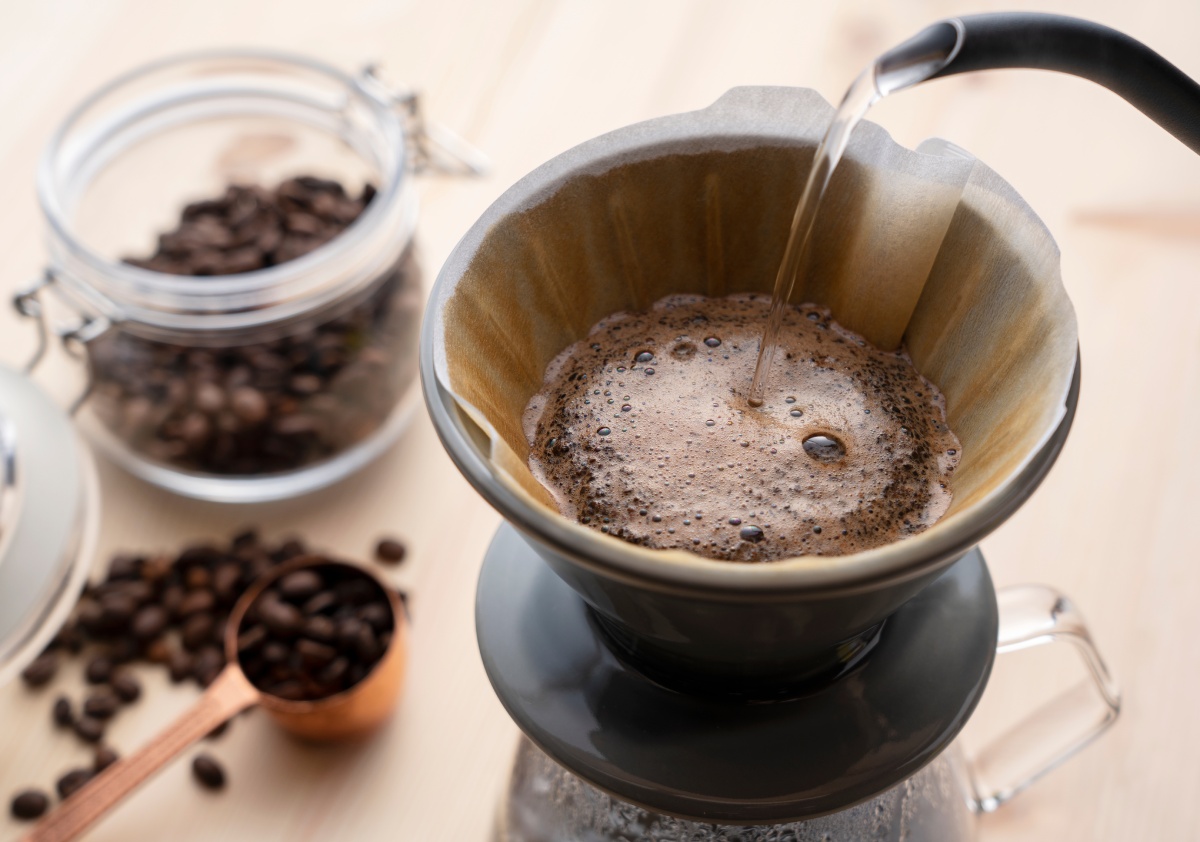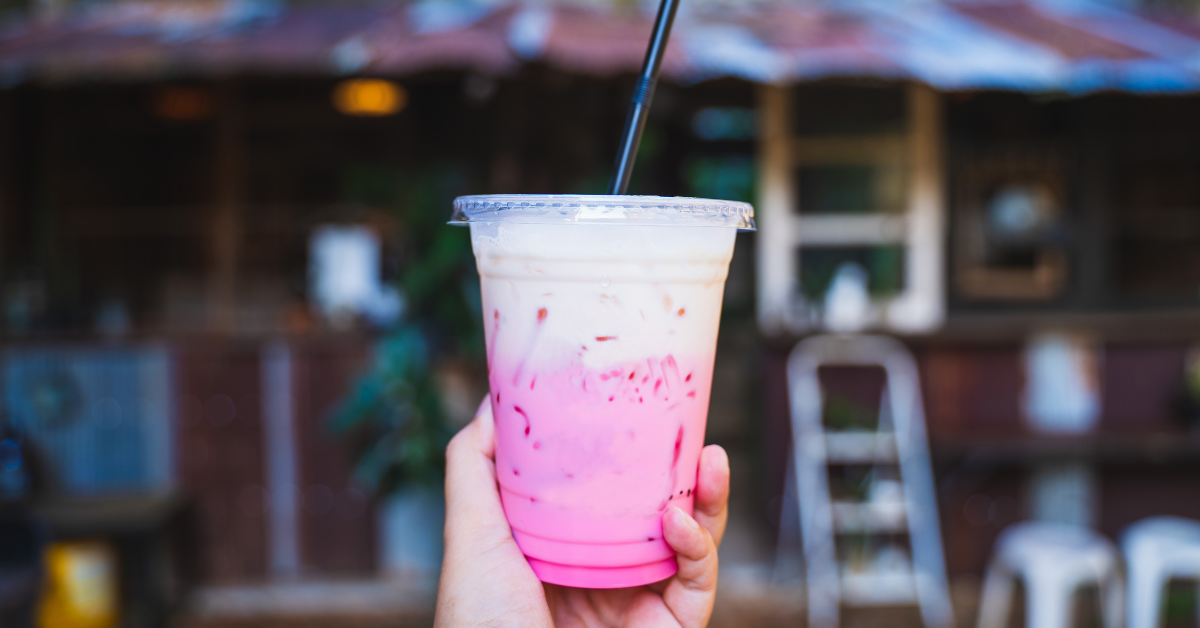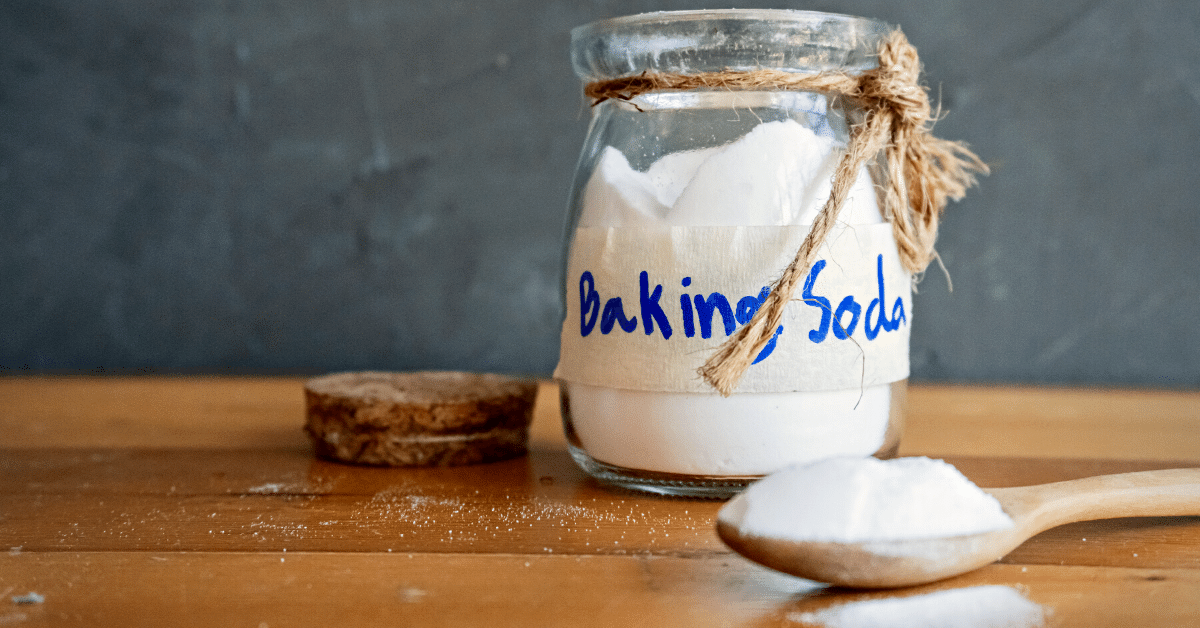For some reason, decaf has a terrible reputation.
But why?
Does decaf coffee taste different from regular?
Generally, it shouldn’t. But, there are some factors that can affect its flavor.
In this article, we’ll go over what those factors are, as well as how you can make decaf taste even better.
Let’s find out.
Does Decaf Coffee Taste Different?
I’ve tried a fair share of decaf coffee, and I can honestly say I can’t tell the difference.
Of course, I’m just a casual coffee lover.
But Gourmet Traveler conducted a blind tasting on the subject. They gathered a group of both coffee experts and occasional coffee drinkers. And guess what? They couldn’t tell regular and decaf coffee apart either.
Now, you should take this with a grain of salt.
You see, decaf actually can taste differently. This slight change in flavor can occur due to the decaffeination process beans go through.
There are several methods commonly used for coffee bean decaffeination. All of them involve using some kind of chemical solvent to dissolve the caffeine molecule from the normal coffee beans.
Well, the thing with chemicals is that, sometimes, they can also dissolve some compounds responsible for flavor and aroma. In that case, decaffeinated coffee might actually taste slightly bland compared to regular coffee.
However, it’s hard to notice this slight difference. That’s mainly because coffee brands usually use different bean varieties to make decaf compared to regular coffee. Comparing decaf and caffeinated coffee made with beans from different regions is like comparing apples and oranges.
NOTE
It’s not unusual to have a dry mouth after drinking decaf coffee.
Decaf Coffee vs Regular Coffee: The Differences
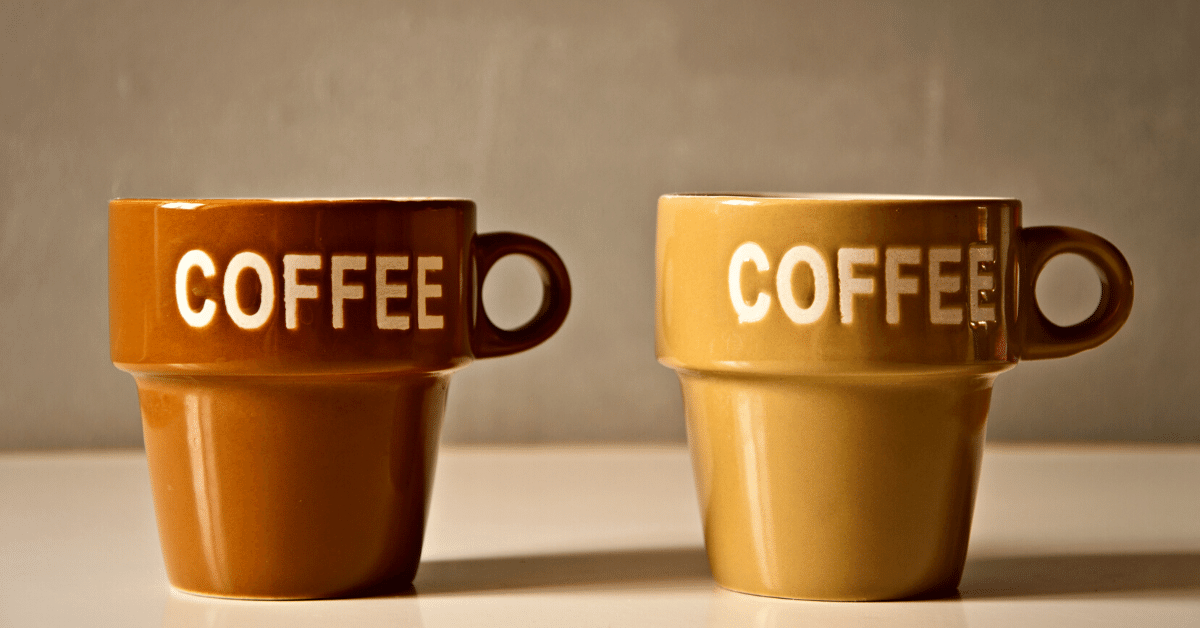
Alright, so we’ve established that there might be a slight difference in taste between decaffeinated coffee and regular coffee. But there are other subtle dissimilarities between the two types of coffee.
Grind Size
After going through the decaffeination process, decaf coffee beans are dried before they’re roasted. The drier the bean, the finer it grinds.
And the finer coffee particles are, the quicker they extract. This can cause decaf coffee to have a slightly bitter flavor compared to the caffeinated grind.
Acidity
Decaf coffee is less acidic than its caffeinated counterpart. For people that have gastroesophageal reflux disease (GERD), the difference in acidity really matters. In fact, decaf is unlikely to cause acid reflux.
Energy Boost
As you probably know, caffeine is a stimulant. It blocks the chemicals that make you sleepy, keeping you alert and energized. Depending on the intake, it can keep you focused for hours.
But since the decaffeination process removes at least 97% of the caffeine from coffee beans, this won’t happen with decaf. You’ll be sleepy even after drinking a full 12-ounce mug.
Jitters
Too much caffeine can be counterproductive. It can cause you to start sweating, shaking, and nervousness.
To make things clear – caffeine doesn’t cause anxiety. But it can worsen your symptoms if you’re already experiencing it. If that’s the case, then consider switching to decaf, as it doesn’t cause these physical sensations.
How to Make Decaf Coffee Taste Better
Maybe the reason your decaf coffee tastes plain is that you weren’t taking extra steps to make it perfect.
Use High-Quality Beans
You can’t make a great cup of coffee with mediocre decaffeinated beans. It’s well worth investing a bit more to find a flavor profile that suits your taste buds.
One thing to keep in mind. No matter how fancy your coffee beans might be, they’ll go stale pretty fast if you don’t store them properly. This means transferring them to an airtight, opaque container and storing them in a dark and cool place.
Always Use Fresh Water
You know how a day-old cup of water tastes weird? Well, your coffee will too. You want to use fresh water every time you’re brewing coffee. If possible, you should use water that’s filtered or bottled.
Don’t Pour Boiling Water
As we all know, water boils at 202 degrees Fahrenheit. But coffee is brewed at slightly lower temperatures, ranging between 195 to 205 degrees.
You don’t want to pour piping hot water over coffee grounds, as it will burn it. Instead, wait for a couple of minutes before adding water.
More is Better
Don’t be scarce on adding coffee. If you add too much, you can always dilute the drink with more water. On the other hand, you can’t just add more grounds when you realize your coffee is too light.
Pros and Cons of Decaf Coffee
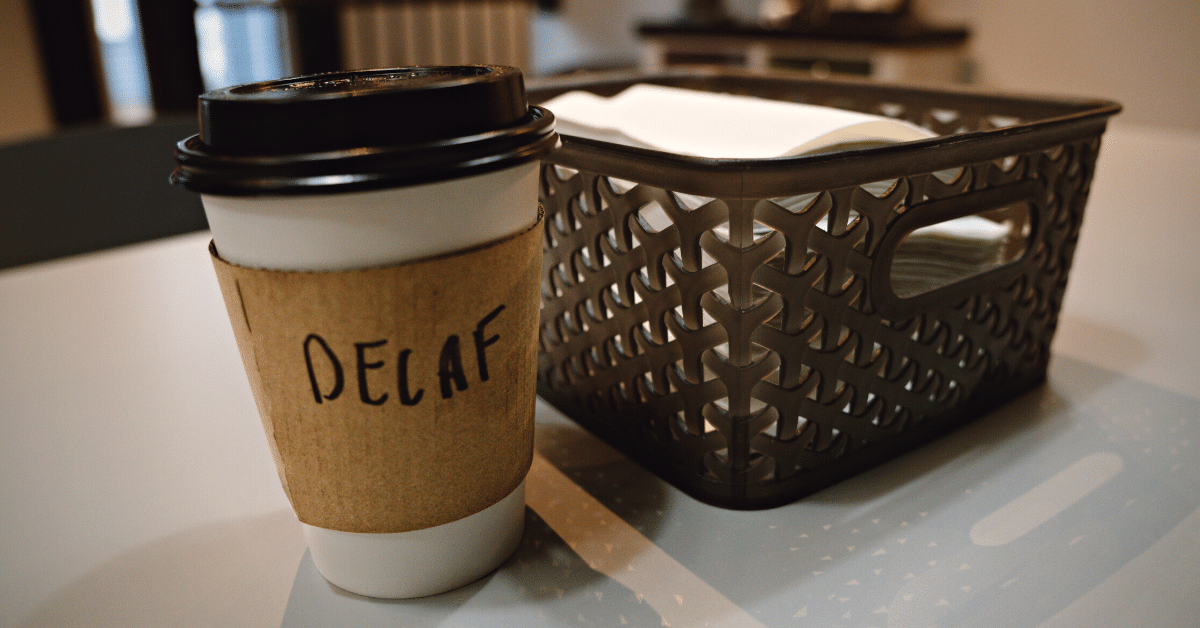
Still on the fence about whether decaf coffee is the right choice or not? No worries. Let’s put its advantages and disadvantages side by side to find out the answer.
Here are some benefits decaf coffee offers:
Regular sleeping schedule – without caffeine content, there’s nothing in your coffee to mess with your sleeping schedule. So, drinking decaf coffee all day won’t be a problem.
Rich in antioxidants – the decaffeination process doesn’t destroy these compounds. Antioxidants neutralize the effects of free radicals, thus keeping you protected from diseases.
Low acidity – decaf is a great alternative for those with acid reflux. Since it’s much lower in acidity, decaf is much easier on your stomach.
No strict limit – there’s such a thing as too much caffeine intake. But with decaf, you can enjoy your favorite beverage without worrying about unpleasant symptoms.
However, there are some disadvantages to using decaf over normal coffee:
No energy boost – sometimes, we need that caffeine kick. It makes us alert, focused, and refreshed.
Weaker flavor – depending on how it’s decaffeinated, coffee can lose its intensity.
Higher price tag – unfortunately, decaf coffee usually costs more. It makes sense, though, as the decaffeination process is long and expensive.
Final Words
There you have it, the mystery behind decaf coffee – solved.
Depending on the production process, decaf might taste different from regular coffee. Several factors can determine that, including the decaffeination method and bean variety.
But with the right beans and brewing technique, you can make a cup of decaf taste delicious.
Just like regular coffee, decaf has its pros and cons. Ultimately, it comes down to which of those factors matters to you the most.
Looking for Starbucks decaf drinks? Check out our article on the best caffeine-free Starbucks beverages.


